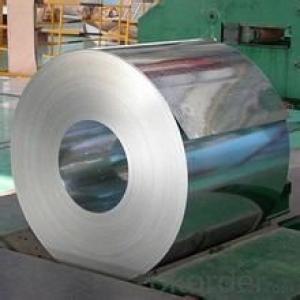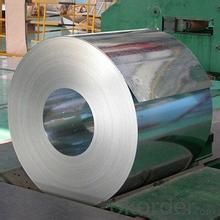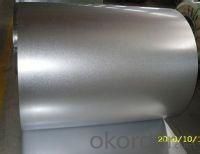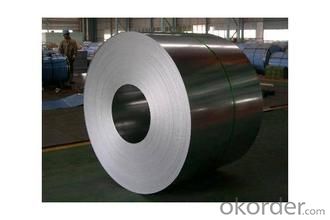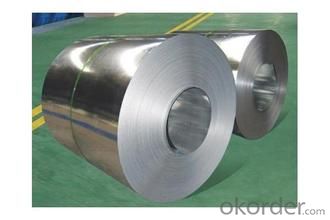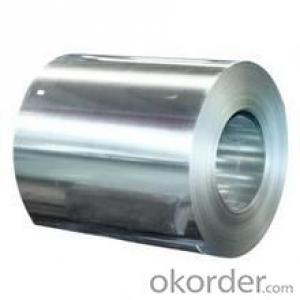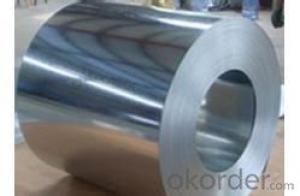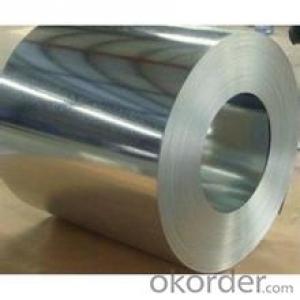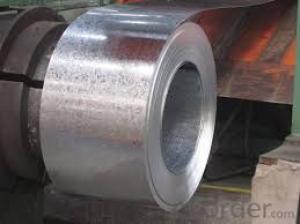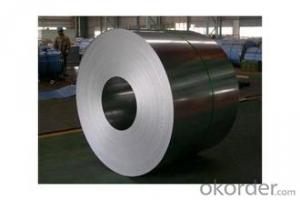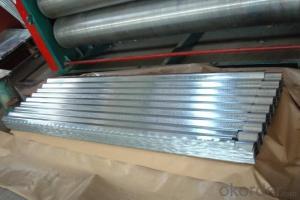Hot-Dip Galvanized/ Aluzinc Steel in SGCC grade
- Loading Port:
- Tianjin
- Payment Terms:
- TT OR LC
- Min Order Qty:
- 100 m.t.
- Supply Capability:
- 5000000 m.t./month
OKorder Service Pledge
OKorder Financial Service
You Might Also Like
Description:
Hot-dip galvanized steel coils are available with a pure zinc coating through the hot-dip galvanizing process. It offers the economy, strength and formability of steel combined with the corrosion resistance of zinc. The hot-dip process is the process by which steel gets coated in layers of zinc to protect against rust. It is especially useful for countless outdoor and industrial applications.
Specifcation:
1.Mateials:SGCC,DX51D / DX52D /S250,280GD
2.Size:width:600-1250mm(900mm,1215mm,1250mm,1000mm the most common)
thickness:0.15-2.0mm
length:1000-6000mm,as your require
3.Zinc coating :60-180g( as required)
4.Coil id:508mm
5.Coil weight: 3-5MT(as required)
6. Surface:regular/mini/zero spangle, chromated, skin pass, dry etc.
Images:
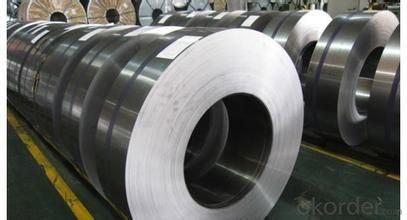
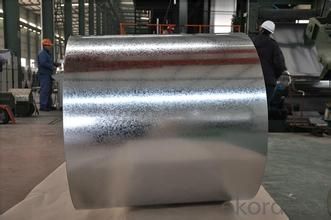
We can ensure that stable quality standards are maintained, strictly meeting both market requirements and customers’ expectations. Our products enjoy an excellent reputation and have been exported to Europe, South-America, the Middle-East, Southeast-Asia, Africa and Russia etc.. We sincerely hope to establish good and long-term business relationship with your esteemed company.
- Q: How are steel coils used in the production of metal furniture?
- Steel coils are used in the production of metal furniture as they serve as the primary raw material for manufacturing various components such as frames, legs, and supports. These coils are unwound and processed through cutting, bending, and shaping techniques to create the desired shapes and sizes. Additionally, steel coils provide the necessary strength and durability to ensure the longevity and stability of the final furniture products.
- Q: How do steel coils contribute to the marine vessel construction industry?
- Steel coils are essential components in the marine vessel construction industry as they play a crucial role in the fabrication of various structural elements of ships and boats. These coils are typically made of high-quality steel and are used in a variety of ways to contribute to the construction and performance of marine vessels. Firstly, steel coils are utilized in the construction of the hull, which is the main body of the ship. The hull requires strong and durable materials to withstand the harsh conditions of the sea, including waves, corrosion, and impacts. Steel coils provide the necessary strength and integrity to the hull, ensuring the vessel's structural integrity and safety. Moreover, steel coils are also employed in the fabrication of decks, bulkheads, and other internal structures of marine vessels. These components are crucial for dividing the ship into compartments, providing stability, and supporting various equipment and machinery. Steel coils are known for their excellent tensile strength, which allows them to bear heavy loads and resist deformation, making them ideal for constructing these vital components. Additionally, steel coils are used in the construction of propulsion systems and other mechanical parts of marine vessels. These coils are often shaped and formed into specific components, such as shafts, gears, and propellers, which are critical for the vessel's propulsion and maneuverability. The high strength and durability of steel coils ensure the reliability and efficiency of these mechanical systems, enabling smooth navigation and operation of the vessel. Furthermore, steel coils contribute to the marine vessel construction industry by enhancing the overall safety and longevity of ships and boats. Steel is known for its resistance to corrosion, which is a significant concern in marine environments due to the presence of saltwater. By utilizing steel coils, marine vessels can withstand the corrosive effects of seawater, reducing the need for frequent maintenance and repair. This, in turn, improves the lifespan of the vessel and reduces the risk of accidents or failures at sea. In conclusion, steel coils are indispensable in the marine vessel construction industry. These coils provide the necessary strength, durability, and resistance to corrosion, ensuring the safety, performance, and longevity of ships and boats. From the construction of the hull to the fabrication of internal structures and mechanical components, steel coils play a vital role in every aspect of marine vessel construction.
- Q: I'm not really sure if carbon steel is considered a metallic material.
- yes its iron with carbon in it
- Q: How do steel coils resist corrosion?
- Steel coils resist corrosion through a combination of factors including the presence of protective coatings, the use of corrosion-resistant alloys, and proper handling and storage practices. The most common method to prevent corrosion in steel coils is the application of protective coatings such as zinc, known as galvanization. This process forms a barrier between the steel and its environment, preventing exposure to moisture and corrosive elements. The zinc coating acts as a sacrificial layer, corroding in place of the steel. Another method to enhance corrosion resistance is the use of corrosion-resistant alloys, which are specifically designed to withstand harsh environments. These alloys contain elements such as chromium, nickel, or molybdenum, which form a passive oxide layer on the surface of the steel, protecting it from corrosion. Proper handling and storage practices also play a crucial role in preventing corrosion. Steel coils should be stored in a dry and well-ventilated area to minimize exposure to moisture. They should be protected from contact with other metals and materials that may cause galvanic corrosion. Regular inspection and maintenance are also important to identify and address any signs of corrosion early on. In summary, steel coils resist corrosion by utilizing protective coatings, corrosion-resistant alloys, and proper handling and storage practices. These measures work together to prolong the lifespan of steel coils and ensure their durability in various environments.
- Q: Can steel coils be coated with weather-resistant materials?
- Yes, steel coils can be coated with weather-resistant materials such as zinc, aluminum, or organic coatings to enhance their resistance to corrosion and exposure to harsh weather conditions.
- Q: How are steel coils processed for different levels of hardness?
- Steel coils can be processed for different levels of hardness through a combination of heat treatment and mechanical processes. To increase the hardness, the coils undergo a process called quenching and tempering. This involves heating the steel to a specific temperature, followed by rapid cooling (quenching) to create a hardened structure. Subsequently, the coils are reheated to a lower temperature and held there for a specific duration (tempering) to achieve the desired level of hardness. Other mechanical processes, such as cold rolling or cold drawing, can also be employed to further enhance the hardness of the steel coils.
- Q: What are the common coil loading and unloading techniques?
- Some common coil loading and unloading techniques include using cranes or forklifts to lift and place the coils onto trucks or storage racks, using coil cars or transfer cars to move the coils within a facility, and using coil handling equipment such as coil grabs or C-hooks to safely grip and manipulate the coils during the loading and unloading process.
- Q: What are the different types of steel coatings for coils?
- There are several different types of steel coatings available for coils, each offering unique properties and benefits. Some of the most common types include: 1. Galvanized Coating: This is the most widely used type of steel coating for coils. Galvanized steel is coated with a layer of zinc, which provides excellent corrosion resistance and protection against rust. It is ideal for outdoor applications or environments with high moisture levels. 2. Galvannealed Coating: Galvannealed steel is a type of galvanized coating that undergoes additional heat treatment, resulting in a matte finish and improved paint adhesion. It offers enhanced corrosion resistance and is often used in automotive and construction industries. 3. Aluminized Coating: Aluminized steel is coated with a layer of aluminum, which provides excellent heat resistance and corrosion protection. It is commonly used in exhaust systems and other high-temperature applications. 4. Organic Coatings: Organic coatings, such as paint or powder coatings, can be applied to steel coils to provide additional protection against corrosion, as well as aesthetic appeal. These coatings come in a wide range of colors and can be customized to meet specific requirements. 5. Tin Coating: Tin-plated steel coils are coated with a layer of tin, which offers excellent solderability and corrosion resistance. It is commonly used in the manufacturing of cans and other food packaging materials. 6. Phosphate Coating: Phosphate coatings are typically applied as a pre-treatment before other coatings to improve adhesion and corrosion resistance. They create a thin, crystalline layer on the steel surface, promoting better paint or powder coating adhesion. These are just a few examples of the different types of steel coatings available for coils. The choice of coating will depend on the specific application requirements, considering factors such as corrosion resistance, heat resistance, paint adhesion, and aesthetic considerations.
- Q: I'm just wondering what the best steel would be for an edc/hunting knife that could put up with alot of abuse.
- D2 and O2 steels are nice. They are expensive, but hold an edge extremely well. S30V is nice also. It's a more stain-resistant steel that holds an edge very well. For outdoor hiking/camping knives, it's tough to beat good old 1095 carbon steel. Sure it will rust, but it's tough as nails, not brittle, holds an edge pretty well, and easy to sharpen...and it's pretty cheap. Other steels, AUS8 is an ok cheap steel. It's stain resistant and cheap. AUS6 isn't worth the time or effort. Buck knives does an excellent job of heat treating 420 stainless to become very hard. Their knives are excellent considering 420 stainless is typically soft steel.
- Q: I believe steel is stronger but it steel lighter than iron too?
- Steel is iron, with other things added that strengthen it and/or make it less rust liable. So, in general, steel is stronger than iron. In so far as the density, that depends on the steel alloy. Some are higher than iron, some lower. Remember there are hundreds of different steel alloys. edit: but the density is still close to that of iron. density steel 7750 to 8050 kg/m? density iron 7870 kg/m?
Send your message to us
Hot-Dip Galvanized/ Aluzinc Steel in SGCC grade
- Loading Port:
- Tianjin
- Payment Terms:
- TT OR LC
- Min Order Qty:
- 100 m.t.
- Supply Capability:
- 5000000 m.t./month
OKorder Service Pledge
OKorder Financial Service
Similar products
Hot products
Hot Searches
Related keywords
